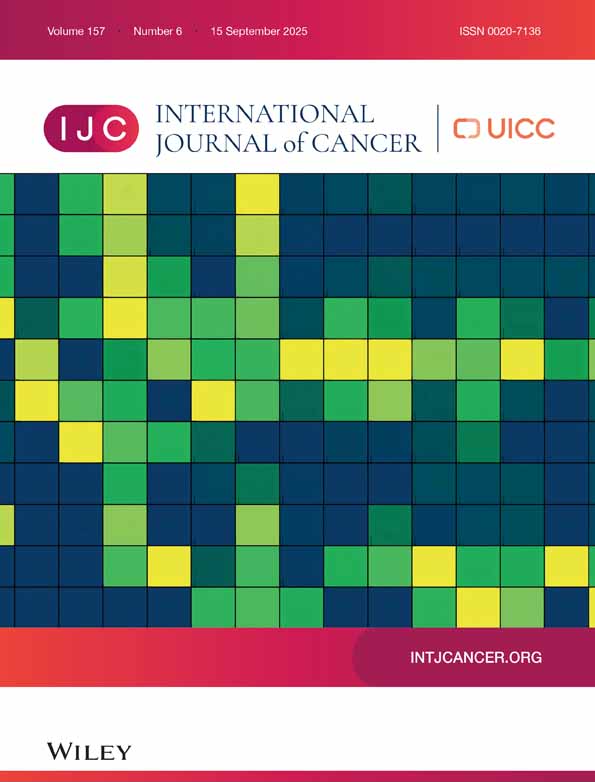Generation of an antitumour immune response to a murine mesothelioma cell line by the transfection of allogeneic mhc genes
Abstract
We have determined whether transfection and expression of allogeneic MHC genes in a murine mesothelioma cell line can generate an anti-tumour immune response. The MHC genes encoding H-2Kb and H-2Dd were transfected into the mesothelioma cell line AC29 (derived from CBA mice, H-2k) and transfectant clones isolated. Each of five H-2Kb and 4 H-2Dd transfectant clones were unable to form tumours in CBA mice, although they had maintained their ability to form tumours in F1 crosses of CBA ± C57b1/10 or CBA ± BALB/c, respectively. Thus the tumours expressing the transfected MHC genes were rejected only in an allogeneic setting. Mice without tumours after transfectant challenge were inoculated on the opposite flank with 1 ± 106 parental AC29. There was no evidence of systemic immunity to the parental cell line since tumours formed at the same rate as in naive mice. The mixing of allogeneic MHC transfectants with parental AC29 did, however, retard the growth of parental tumour. Our study illustrates that the expression of allogeneic MHC molecules on a highly immunosuppressive and non-immunogenic murine malignant mesothelioma cell line was able to stimulate rejection of tumour cells but was incapable of generating a systemic protective response against the parental cell line.




